What is On-Page SEO and why is it important?

What is On-Page SEO and why is it important?
On-Page SEO refers to a set of actions performed within a website to improve its ranking in search engines.
These actions include optimizing content, website structure, HTML tags, and other technical factors.
The importance of #On_Page_SEO lies in its ability to help search engines better understand the site’s content and display it to relevant users in search results.
On-page SEO plays a very important role in the success of a website.
A website with strong on-page SEO is more likely to rank high in search results, attract more visitors, and ultimately achieve its business goals.
This process involves optimizing various site elements such as titles, meta descriptions, keywords, and URL structure.
By performing these optimizations, search engines like Google can easily identify and understand the site’s content, leading to an increase in the site’s ranking in search results.
In fact, on-page SEO assures search engines that your site is relevant and valuable.
By using on-page SEO techniques, you can show search engines that your content is the best answer to users’ questions.
This leads search engines to introduce your site to more users and increases your organic site traffic.
Given the importance of on-page SEO, every website owner should pay special attention to this topic.
Investing in on-page SEO can yield significantly higher returns than other marketing methods because the organic traffic obtained from on-page SEO is more stable and higher quality.
Does your current website build the trust that potential customers should have in your business? If the answer is no, it’s time to get a professional and impactful corporate website with RasaWeb.
✅ Fully custom design tailored to your brand identity
✅ Increased lead generation and business credibility in the eyes of customers⚡ Contact us for a free consultation!
Keyword Research for On-Page SEO
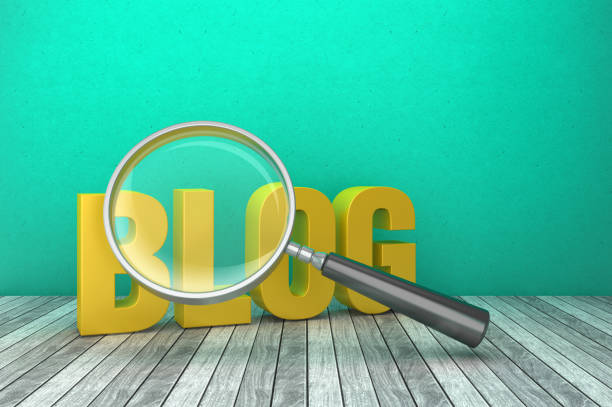
Keyword Research for On-Page SEO
Keyword research is the foundation of any successful on-page SEO strategy.
This process involves identifying words and phrases that users employ in search engines to find information relevant to your business.
Selecting appropriate keywords and strategically using them in website content helps search engines better understand your site’s topic and purpose.
To begin keyword research, you can use various tools such as Ahrefs, Moz Keyword Explorer, and Ubersuggest.
These tools help you find keywords related to your business, analyze their search volume, and assess the competition for each keyword.
This way, you can identify keywords with high search volume and low competition, and use them in your content.
In addition to the tools mentioned above, you can also use other methods for keyword research.
For example, you can review common user questions in forums and social media and use these questions to find relevant keywords.
Additionally, you can examine your competitors’ websites and identify the keywords they are using.
After identifying suitable keywords, you should strategically use them in your website content.
Keywords should be used in page titles, meta descriptions, subheadings, body text, and image alt tags.
However, you should avoid excessive use of keywords, as this can lead to your site being penalized by search engines.
Instead, try to write your content naturally and smoothly, and incorporate keywords organically.
On-page SEO and the correct use of relevant keywords play a very important role in improving your site’s ranking in search results.
Optimizing Titles and Meta Descriptions
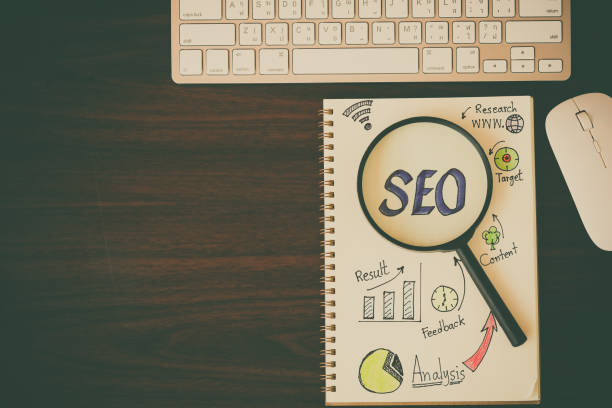
Optimizing Titles and Meta Descriptions
Titles and meta descriptions are the first elements users see in search results.
Optimizing these elements plays a very important role in attracting users and increasing the click-through rate (CTR).
An attractive title and a concise and useful meta description can encourage users to click on your website link.
Each page’s title should accurately describe the page’s topic and include main keywords.
The title length should be between 50 and 60 characters to be fully displayed in search results.
Also, the title should be attractive and compelling to encourage users to click on your website link.
Meta Description
Meta descriptions should also briefly describe the page’s content and include secondary keywords.
The meta description length should be between 150 and 160 characters.
Meta descriptions should be accurate, attractive, and relevant to the page’s topic.
Additionally, meta descriptions should include a call to action to encourage users to click on your website link.
Optimizing titles and meta descriptions is a fundamental part of on-page SEO and can significantly increase your website’s organic traffic.
Ensure that your titles and meta descriptions are unique for each page and relevant to the page’s content.
In the table below, you can see examples of optimized titles and meta descriptions:
| Page | Optimized Title | Optimized Meta Description |
|---|---|---|
| Homepage | SEO Training | Improve Website Ranking on Google | Simple and practical SEO training. Increase your site’s ranking on Google and attract more traffic with us. |
| Article: What is On-Page SEO? | What is On-Page SEO? | Comprehensive Guide 2024 | What is On-Page SEO and how does it help improve your site’s ranking? In this article, we comprehensively examine on-page SEO. |
Using this table, you can get ideas for optimizing the titles and meta descriptions of your website pages.
Content Optimization for On-Page SEO

Content Optimization for On-Page SEO
Content is king! This phrase is a fundamental principle in SEO.
High-quality, valuable, and relevant content plays a very important role in attracting users, increasing site ranking in search results, and improving conversion rates.
To optimize content for on-page SEO, you need to pay attention to a few key points.
Firstly, your content should be valuable and useful to users.
Content that meets user needs and answers their questions is more likely to be shared and receive more backlinks.
Secondly, your content must be unique and original.
Avoid copying others’ content, as this can lead to your site being penalized by search engines.
Thirdly, your content should be regularly updated.
Fresh and updated content shows search engines that your site is active and dynamic.
Furthermore, you should pay attention to the strategic use of keywords in your content.
Keywords should be placed naturally and smoothly within the text, and excessive use should be avoided.
Also, you should pay attention to your content’s structure.
Your content should have headings, subheadings, short paragraphs, and bulleted lists to make it easy for users to read.
Finally, you should pay attention to optimizing your images and videos.
Images and videos should have appropriate alt tags, and their size should be optimized to avoid slowing down page load speed.
By following these tips, you can optimize your content for on-page SEO and improve your site’s ranking in search results.
On-page SEO gives you the opportunity to achieve the best outcome.
Are you dissatisfied with the low conversion rate of visitors to customers on your e-commerce site?
Solve this problem forever with professional e-commerce website design by RasaWeb!
✅ Increase visitor-to-customer conversion rate
✅ Create an excellent user experience and build customer trust
⚡ Get a free consultation
Optimizing URL Structure
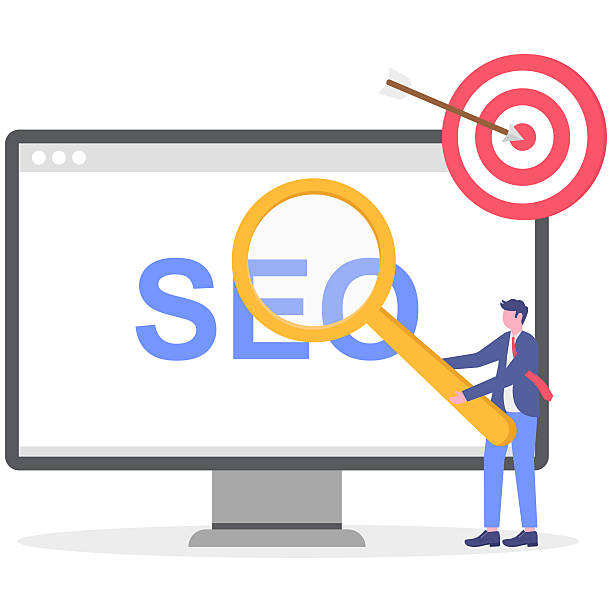
Optimizing URL Structure
Your website’s URL structure plays an important role in SEO.
An optimized URL helps search engines and users better understand the page’s topic.
A good URL should be short, descriptive, and include main keywords.
Avoid using capital letters, special characters, and random numbers in your URL.
Each page’s URL should accurately describe the page’s topic.
For example, if you have a page about SEO training, its URL should look something like this: `example.com/amoozesh-seo`.
This URL shows search engines and users that the page is about SEO training.
Additionally, the URL should be short and readable.
Avoid using long and complex URLs, as these can be confusing for users.
Each page’s URL should be unique.
Avoid using duplicate URLs, as this can cause problems for search engines.
Also, the URL should be logically organized.
Avoid using messy URL structures, as these can be confusing for users.
Optimizing URL structure is an important part of on-page SEO and can significantly improve your site’s ranking in search results.
Ensure that your website’s URL structure is logical, readable, and includes main keywords.
Image Optimization for On-Page SEO
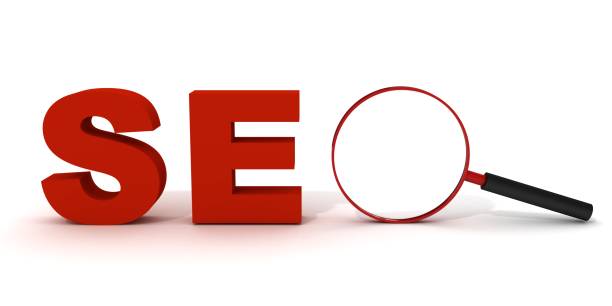
Image Optimization for On-Page SEO
Images play an important role in the attractiveness and user-friendliness of your website.
However, in addition to visual appeal, images can also help improve your site’s on-page SEO.
To optimize images for SEO, you need to pay attention to a few key points.
Firstly, save your images with appropriate file names.
The image file name should be descriptive and include relevant keywords.
For example, if you have an image of a cat, its file name should be something like this: `domestic-cat.jpg`.
Secondly, use alt tags for your images.
An alt tag is an alternative text for the image that is displayed to users if the image fails to load.
The alt tag should be descriptive and include relevant keywords.
Thirdly, optimize the size of your images.
Large images reduce page load speed and affect user experience.
Use image compression tools to reduce the size of your images.
Furthermore, you should pay attention to choosing the appropriate format for your images.
The JPEG format is suitable for images with many colors, while the PNG format is suitable for images with text and graphics.
Also, you should pay attention to the dimensions of your images.
Images should be displayed with appropriate dimensions on the page, and excessive zooming in or out should be avoided.
By following these tips, you can optimize your images for on-page SEO and improve your site’s ranking in search results. Remember that on-page SEO is a continuous and dynamic process that requires effort and follow-up.
Improving Site Load Speed
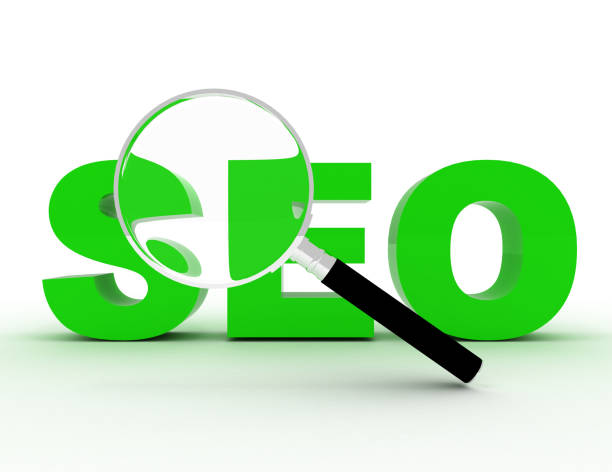
Improving Site Load Speed
Site load speed is one of the most important ranking factors in search engines.
Users expect a website to load within a few seconds.
If your site’s load speed is slow, users quickly leave your site and visit other sites.
This can lead to a decrease in your site’s ranking in search results.
To improve site load speed, you can use various methods.
For example, you can optimize your images, use a Content Delivery Network (CDN), compress your HTML, CSS, and JavaScript code, and utilize browser caching.
Also, you should use quality hosting.
Quality hosting ensures the speed and stability of your website.
GTmetrix and Google PageSpeed Insights are useful tools that help you check your site’s speed.
Improving site load speed is a valuable investment that can significantly enhance your site’s ranking in search results and improve user experience.
Search engines also attach great importance to your site’s load speed.
The table below highlights some important factors in improving site load speed:
| Factor | Description |
|---|---|
| Image Optimization | Reducing image size without quality loss. |
| Using CDN | Distributing content across different servers for faster user access. |
| File Compression | Reducing the size of HTML, CSS, and JavaScript files. |
| Using Browser Cache | Storing site data in the user’s browser for faster loading on subsequent visits. |
Using Internal Linking
![]()
Using Internal Linking
Internal linking is the process of creating links between different pages of your website.
Internal linking helps search engines better understand your website’s structure and access your site’s more important pages.
Additionally, internal linking helps users navigate your website easily and find the information they need.
To use internal linking, you need to pay attention to a few key points.
Firstly, internal links should be relevant to the page’s content.
Avoid creating irrelevant links, as this can confuse users.
Secondly, internal links should be created with appropriate anchor text.
Anchor text is the text you click on to be directed to another page.
Anchor text should be descriptive and include relevant keywords.
Thirdly, avoid creating too many links on one page.
Creating too many links can lead to a decrease in page authority.
Internal linking is an important part of on-page SEO and can significantly improve your site’s ranking in search results.
Ensure that your website’s internal linking is logical, relevant, and user-friendly.
On-page SEO means optimizing the site for search engines.
Did you know that 94% of a first impression of a company is related to its website design?
RasaWeb, by offering professional corporate website design services, helps you create the best first impression.
✅ Create a professional and trustworthy image for your brand
✅ Easier attraction of potential customers and improved online presence
⚡ Get a free corporate website design consultation
Website Responsiveness Optimization

Website Responsiveness Optimization
In today’s world, most users access the internet from mobile devices.
Therefore, website responsiveness optimization is essential.
A responsive website automatically adapts to the screen size of the user’s device, providing a better user experience.
Search engines prefer responsive websites and display them higher in search results.
To optimize your website for responsiveness, you can use CSS frameworks like Bootstrap, employ responsive images and videos, and use responsive tests to ensure your website functions correctly on various devices.
Proper on-page SEO helps your site to be seen better. On-page SEO helps your site appear in better rankings.
Optimizing website responsiveness is an important part of on-page SEO and can significantly increase your website’s organic traffic and improve user experience.
Ensure that your website is displayed correctly on all devices and that users can easily access its content. On-page SEO can make search engines see your site better.
Monitoring and Analyzing On-Page SEO Results

Monitoring and Analyzing On-Page SEO Results
On-page SEO is an ongoing process that requires monitoring and analysis.
To evaluate the effectiveness of your on-page SEO strategy, you need to regularly monitor and analyze its results.
You can use various tools such as Google Analytics and Google Search Console to monitor and analyze your on-page SEO results.
Using Google Analytics, you can check your website traffic, identify your traffic sources, analyze user behavior on your website, and measure your conversion rate.
Using Google Search Console, you can check your website’s performance in search results, identify the keywords through which users reach your website, find website errors, and submit your sitemap to Google.
On-page SEO is important for increasing your site’s ranking.
By analyzing your on-page SEO results, you can identify the strengths and weaknesses of your strategy and take necessary actions to improve it.
For example, if you notice that your website’s organic traffic has decreased, you should check whether there have been changes in Google’s algorithms, whether your competitors have improved their on-page SEO strategy, and whether there are any technical issues on your website.
On-page SEO means site optimization.
Monitoring and analyzing on-page SEO results is an essential part of the on-page SEO process and can help you improve your site’s ranking in search results and attract more organic traffic.
On-page SEO makes users stay on your site longer.
Frequently Asked Questions
| Question | Answer |
|---|---|
| What is On-Page SEO? | On-page SEO involves optimizing elements directly under your control and within your website. Its goal is to help search engines better understand page content and improve its ranking. |
| Why is On-Page SEO important? | On-page SEO provides clear signals to search engines about page content, improves user experience, and increases the chances of attracting organic traffic. |
| What are the most important On-Page SEO factors? | Keywords, Title Tag, Meta Description, URL structure, quality content, image optimization, and internal links are among the most important factors. |
| What is the role of the Title Tag in On-Page SEO? | The title tag is one of the most important signals for search engines and users, specifying the main topic of the page. It should include the main keyword and be engaging. |
| How important is the Meta Description? | Meta descriptions do not directly affect rankings, but by encouraging users to click, they can improve the click-through rate (CTR). |
| How can we optimize images for On-Page SEO? | By using descriptive file names, appropriate Alt Text containing keywords, compression to reduce size, and correct dimensions. |
| What is the effect of Internal Links on SEO? | Internal links help search engines discover and index site pages, distribute authority (PageRank) across the site, and improve user navigation. |
| Is page load speed an On-Page SEO factor? | Yes, page load speed is a critical factor in on-page SEO and user experience. Slower pages can lead to higher bounce rates and lower rankings. |
| What are the characteristics of quality content for On-Page SEO? | Quality content should be comprehensive, unique, relevant, trustworthy, readable, and fully answer users’ needs and questions. |
| How can keywords be used in content? | Keywords should be used naturally in the title, subheadings, first paragraph, body text, and image alt text. Avoid keyword stuffing. |
And other services of RasaWeb advertising agency in the field of advertising
- Smart Data Analysis: An effective tool for customer acquisition through marketing automation.
- Smart Content Strategy: Designed for businesses seeking to manage campaigns by utilizing real data.
- Smart Customer Journey Mapping: A combination of creativity and technology to increase sales through custom programming.
- Smart Digital Branding: An effective tool for digital branding with the help of attractive UI design.
- Smart Sales Automation: A dedicated service for growth in SEO ranking improvement based on precise audience targeting.
And over hundreds of other services in the field of internet advertising, advertising consultation, and organizational solutions
Internet Advertising | Advertising Strategy | Advertorial
Resources
On-Page SEO TrainingSite Ranking FactorsSEO Trends 2024Comprehensive SEO Guide
? Are you looking to boost your business online? RasaWeb Afarin, a leading digital marketing agency, is your reliable partner on the path to digital success, offering specialized services including custom website design, professional SEO, and targeted advertising campaigns.
📍 Tehran, Mirdamad Street, next to Bank Markazi, Kazeroun South Alley, Ramin Alley, No. 6




